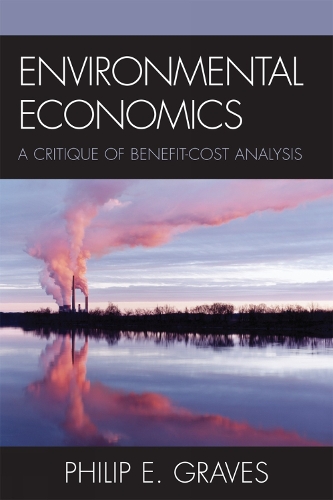
Environmental Economics: A Critique of Benefit-Cost Analysis
(Paperback)
Publishing Details
Environmental Economics: A Critique of Benefit-Cost Analysis
By (Author) Philip E. Graves
Bloomsbury Publishing PLC
Rowman & Littlefield Publishers
9th April 2007
United States
Classifications
General
Non Fiction
333.7
Physical Properties
Paperback
198
Width 155mm, Height 231mm, Spine 11mm
299g
Description
For the past 25 years, governmental decision-makers have employed the economic approach of benefit-cost analysis for resource allocation decisions. Environmental Economics describes, in a non-technical, readily understandable way, why the actual practice of benefit-cost analysis in environmental settings is heavily biased against the environment. The book provides environmentalists with the tools necessary to show policy-makers that pursuing many policies with apparent costs greater than benefits are, in fact, welfare enhancing.
Reviews
Graves' economics book takes a critical look at the benefit-cost analysis of environmental issues. This well-written, teaching-style book has excellent coverage of the applicable theory and methodology, and serves as a good primer for advanced undergraduates and practitioners with some economics background. -- Robert A. Simons, Ph.D, Professor, Levin College of Urban Affairs, Cleveland State University
Philip Graves provides a lucid account of contemporary environmental economics that is not only interesting but also goes beyond the conventional wisdom on the subject. Therefore, both beginning students and seasoned researchers in the field will find this book to be of considerable value. -- Amitrajeet A. Batabyal, Arthur J. Gosnell Professor of Economics, Rochester Institute of Technology
Author Bio
Philip E. Graves is professor of economics at the University of Colorado, Boulder. He has been teaching environmental economics for thirty years and is the co-author of The Economics of Environmental Quality (Norton, 1986) and Intermediate Microeconomics (Harcourt, 1988).
